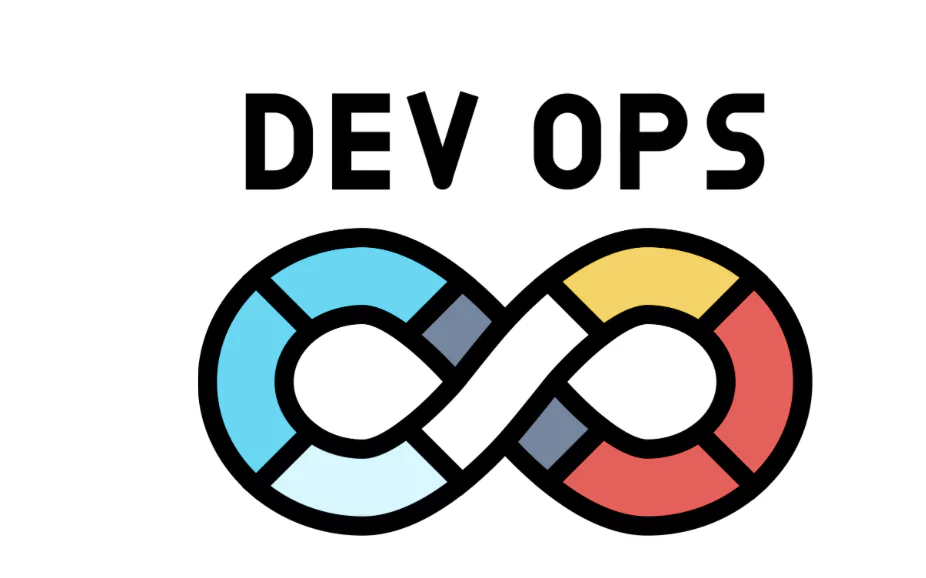Why DevOps? Do you know this is a popular question among both tech and non-tech domains? As DevOps is a new practice developed to improve the efficiency and productivity of the software development production cycle. DevOps has taken an important place in the modern IT world, but the meaning of DevOps differs for different people.
People are also speculating around the fact that how and why DevOps has suddenly gained this much attention so fast. Here, we will try to understand why DevOps is adopted by IT and what DevOps stands for for and how DevOps is different from the traditional software development methods. Read the complete article to know more in detail.
What Is DevOps?
DevOps is a set of practices based on the agile software development approach, which acts as a bridge between the development team and operations team, ensuring faster and more reliable delivery of the end product. It fosters communication, collaboration, constant feedback loops, and automation among the development and operations teams to ensure an effective software development process.

It consists of various techniques, practices, and tools to boost an organisation’s ability to deliver applications at a faster and reliable rate. DevOps implements automation, Continuous integration, Continuous delivery, and continuous improvement to allow teams to build, test, and deploy software applications more efficiently to match the high demands in the industry.
Why DevOps?
DevOps helps companies accelerate their software development process, ensuring faster and more reliable delivery of quality applications to customers. Earlier developers used to build the application and used to hand it to the operations team to run and make an analysis. There used to be a lack of communication and collaboration, which resulted in delays and bottlenecks in the development process.

Now, with DevOps, developers and operations teams communicate and collaborate with the same set of tools to make sure that the end product is delivered quickly while ensuring top quality of the product. For companies, it is beneficial as it offers faster updates, fewer errors, better teamwork, and overall satisfied customers.
- Better Communication and collaboration
- Increased efficiency and an automation approach
- Flexibility for scaling
- Speed and agile development
- Enhanced customer satisfaction
- Improved business resilience
- Cost saving
- Faster delivery i,e. Faster time to market
DevSecOps is a part of DevOps where security and QA teams collaborate to provide a safe and secure environment for development. Also, automation processes speed up with automating deployment, infrastructures, and more.
Core DevOps Principle
Let us look at some of the major devOps principles below.
- Collaboration & Communication: Development and Operations work together as one team to build and run software smoothly. They share responsibilities, tools, and communicate effectively.
- Automation: Major repetitive tasks like testing and deployment can be done automatically to save time and reduce errors. This enhances the efficiency, increasing productivity.
- Continuous Integration and Continuous Delivery: With DevOps, integrations are effective and smooth with automation, ensuring faster delivery and reliable release without many manual dependencies.
- Continuous Improvement: This approach encourages a cycle of continuous iterative improvement and adaptation of new methods to help organisations stay updated and gain more with this approach.
- Continuous Monitoring and Feedback: Systems are monitored in real-time to spot and fix problems fast. With real-time insights, performance can be analysed with quick resolutions. Also, feedback loops help discover any issues or improvements needed at any stage.
- Infrastructure as Code (IaC): This approach manages the infrastructure of an application with code, which allows more scalability and version version-controlled environment.
Read More: DevOps Frameworks Explained: A Beginner’s Guide to Building Your Own in 2025
Important Tools Used In DevOps
DevOps tools offer faster, effective, and automation features to make development better. These tools also encourage easy communication and collaboration, especially for remote teams. You want to know why devOps is right; these tools are also one of the main reasons for devOps being popular.
1. GitHub

Git is a popular version control system that helps teams track code changes, collaborate, and manage different versions of a project. More than 90% developers use GitHub and its platforms, like GitHub, GitLab, and Bitbucket, which offer collaboration features such as pull requests, code reviews, and CI/CD integration. Git also ensures smooth teamwork and reliable source code management.
2. Jenkins

When we talk about automation in DevOps, Jenkins is the best answer we can get. It is one of the most popular automation servers for building, testing, and deploying applications.
It supports a large number of plugins that make CI/CD pipelines easy to set up. With Jenkins, teams can automate repetitive tasks and ensure faster and error-free software delivery.
Read More: What is AWS DevOps? | Architecture, Tools, and Benefits in 2025
3. Docker

Docker comes into the picture when it’s all about efficient packaging. It is a containerization tool that allows developers to package applications with all their dependencies.
This ensures the app runs the same way across different environments, which means supported on all platforms. In DevOps, Docker simplifies deployment and makes scaling applications much easier.
4. Kubernetes

Another popular DevOps tool i,e. Kubernetes is an orchestration platform used to manage containers like Docker. It automates deployment, scaling, and monitoring of containerized apps. In DevOps, Kubernetes helps organizations run complex applications smoothly across cloud or on-premise infrastructure.
5. Ansible

Ansible is a configuration management tool in DevOps that automates server setup, software installation, and system updates. Teams can define the complete structure and layout of the infrastructure using simple YAML files. In DevOps, Ansible reduces manual work and ensures consistency across multiple servers.
![]() Join Our Devops & Cloud Computing Telegram Channel
Join Our Devops & Cloud Computing Telegram Channel
![]() Join Our Devops & Cloud Computing WhatsApp Channel
Join Our Devops & Cloud Computing WhatsApp Channel
6. Terraform

When we talk about an Infrastructure as Code (IaC) tool, then Terraform dominates this section of DevOps, helping teams to build and manage infrastructure using code. It is supported across multiple cloud providers like AWS, Azure, and GCP. In DevOps, Terraform makes infrastructure deployment faster, repeatable, and easy to scale.
7. Prometheus & Grafana

Prometheus is a monitoring tool in DevOps that collects metrics from applications and systems, while Grafana visualizes those metrics in dashboards. Together, they help DevOps teams track performance, detect issues early, and improve system reliability.
10. Slack & Microsoft Teams

Effective communication is a key in DevOps, which can be implemented using communication and collaboration tools like Slack and Microsoft Teams, keeping teams connected and working together.
They integrate with CI/CD pipelines, monitoring tools, and alerting systems so developers and operations can act quickly when issues arise.
Read More: DevOps Career Path: Your Career Guide For 2025
Benefits of Adopting DevOps in 2025
Many things have changed in the digital world since the introduction of Artificial Intelligence. DevOps strengthens the promise of enabling faster, effective, and quality applications for organisations looking to start and scale their businesses online. Let us know some major benefits of DevOps below.
1. Faster Software Delivery
The best answer to why devOps is that with devOps, companies can release updates, new features, and even the entire software end product faster. Currently, where everything is faster, the expectations of users are high; this perk of DevOps is very significant.
Continuous Integration (CI) and Continuous Deployment (CD) pipelines ensure code moves from development to production quickly without any manual delays.
2. Improved Collaboration
DevOps breaks the long wall between developers and operations, which used to slow the process of development, and encourages them to work together. When teams are often remote and global in 2025, this culture of shared responsibility with DevOps makes communication smoother and reduces conflicts, directly leading to better productivity.
3. Better Quality
DevOps fosters automation and continuous testing to reduce errors, speed up deployment, and remove bugs in software. Nowadays, when businesses are more dependent on digital systems, this ensures that customers face fewer lags and get a better experience working with the product. This further encourages better feedback and a long-lasting relationship. This also improves brand reputation and trust among users.
4. Scalability With DevOps
DevOps allows organisations to easily scale up or scale down their application based on the needs and demands using Infrastructure as Code.
With the adoption of cloud based environment, this flexibility helps businesses handle sudden traffic spikes or easily expand their presence globally without heavy manual work.
Read More: The 20 Most Important DevOps Trends in 2025: Beat the Game
5. Enhanced Security
Modern DevOps offers DevSecOps, which easily integrates security checks throughout the development process to keep the system and development environment safe from any kind of unauthorised activity.
This is 2025, where cyberthreats are smarter and more advanced; this built-in security helps companies stay protected without slowing down innovation.
6. Saving Cost
Earlier, there used to be a lot of manual work, including high revisions due to a lack of communication, missed deadlines, and higher infrastructure costs. Now with automation, faster deployment, reduction of manual and repetitive processes, faster development and more becoming possible all at a very reasonable cost. This explains why devOps can be a cost efficient approach for businesses.
Businesses are adopting DevOps to save more money by reducing downtime and avoiding costly errors, which leads to higher return on investment (ROI).
7. Continuous Improvement
DevOps iterates, collects feedback, and monitors well to extract any issues or scope for improvement. This approach helps companies stay innovative and adapt to changing market needs while delivering better experiences for their clients.
Also Read:
- How DevOps Works? Easy Explanation
- DevOps Team Setup 101 – Explore Powerful Future of Tech
- DevOps Interview Questions and Answers 2025: For Freshers & Beginners
- 7 Effective Devops Books You Must Read to Become A DevOps Expert
Become Pro In DevOps With PW Skills
Become a master in the art of building your own devOps pipeline with PW Skills DevOps Course. Learn the fundamentals of DevOps, best practices and advanced devOps tools through interactive tutorials and industry oriented curriculum. Also, get a wide range of devOps interview questions for practice to help you strengthen your concepts in devOps.
Work on real world projects and master the art of continuous delivery of high quality software products only at pwskills.com. Get complete career assistance and prepare for interviews under the guidance of dedicated mentors on our platform. Get your industry recognised certification after successfully completing the course.
Why DevOps Is Important FAQs
Q1. Why DevOps is important?
Ans: DevOps helps companies accelerate their software development process, ensuring faster and more reliable delivery of quality applications to customers.
Q2. What is DevOps?
Ans: DevOps is a set of practices based on the agile software development approach, which acts as a bridge between the development team and operations team, ensuring faster and more reliable delivery of the end product.
Q3. What is the main goal of DevOps?
Ans: The main objective of devOps is to improve collaboration and communication between the development and operations teams to streamline workflow and build better quality applications over time.
Q4. What are the principles of DevOps?
Ans: Continuous integration, Continuous delivery, Continuous improvement, Continuous deployment, automation, and Infrastructure as Code are the main principles of DevOps.


